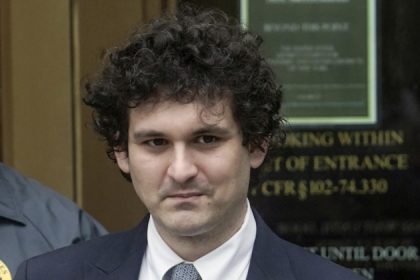MARRAKECH, Morocco, Oct 12 (Reuters) – Kenya is planning to buy back up to a quarter of its $2 billion 2024 international bond before year-end after it secures new loans, central bank governor Kamau Thugge told Reuters, a move aimed at alleviating concerns it can repay the looming debt. The country is in talks to raise between $500 million and $1 billion in commercial loans from two regional policy banks, Trade & Development Bank and the African Export-Import Bank, Thugge said in an interview on the sidelines of the World Bank and IMF meetings in Marrakech. “We would use part of that for the buyback, for the liability management, and the rest would be for the budget support,” said Thugge, who earlier this month said Kenya was expecting to “progressively reduce the liability of the Eurobond”. “We would like to start as quickly as possible,” he said of the buyback. Kenya’s approach to repaying the $2 billion 2024 bond is being watched closely by overseas investors, given its rising debt repayments, weakening currency and soaring bond yields, which have locked many developing countries out of international capital markets. Thugge said Kenya is also in talks with the International Monetary Fund (IMF) for an “augmentation” of its loan programme, which is undergoing its sixth review in November, and with the World Bank to add to a $750 million loan planned for March. “We don’t mind actually asking for exceptional access,” the governor added. “Of course it has additional conditionalities and requirements, but the kind of reforms we are undertaking… we can put that on the table.” Exceptional access would allow Kenya to ask for more than its limit of IMF funding. If more funds are approved, it would be the third increase to the loan programme, which was originally set at $2.3 billion in 2021. If Kenya continues to be unable to issue new international bonds and has to repay the $2 billion from its foreign currency reserves, the reserves would still be at about $7 billion by the end of June 2024, Thugge said. As of Oct. 5, the central bank said it had $6.9 billion in usable foreign exchange reserves, enough to cover around 3.7 months’ worth of imports. The central bank held its main interest rate (KECBIR=ECI) at 10.5% on Oct. 3. Inflation had edged up to 6.8% in September from 6.7% the month before, having fallen below the 7.5% target in June for the first time in a year. “We are still having some pressures on the exchange rate, so we would like to at least maintain the interest rates where they are for some time,” Thugge said, declining to specify a timeframe. If inflation rises above 7.5%, he said, “we’ll take action to address that”. “If it comes down to 5% and there is less pressure on the exchange rate, then we can consider whether to lower the rate.” Despite Kenya’s debt pressures, the economy is set to grow 5.5% this year and around 6% in 2024, Thugge said, above the IMF forecasts for Sub-Saharan Africa of 3.3% and 4% respectively. Read Next Legalcategory Caroline Ellison to face cross-examination at Sam Bankman-Fried’s trial 10:11 AM UTC · Updated ago Analysis Analysis: Canada may struggle to recoup $26 billion cost of Trans Mountain pipeline 10:10 AM UTC · Updated ago Antitrustcategory Illumina ordered by EU antitrust regulators to sell Grail 10:03 AM UTC · Updated ago U.S. Marketscategory Morning Bid: Fed’s data-driven approach set for inflation test 10:01 AM UTC · Updated ago Reporting by Rachel Savage and Jorgelina do Rosario; Additional reporting by Duncan Miriri in Nairobi; Editing by Karin Strohecker, Elisa Martinuzzi and Jan Harvey Our Standards: The Thomson Reuters Trust Principles. Acquire Licensing Rights, opens new tab Rachel Savage Thomson Reuters Rachel Savage is Africa Senior Markets Correspondent at Reuters, where she covers finance and economics across Sub-Saharan Africa, from sovereign debt crises and IMF programs to foreign exchange markets and cryptocurrencies. Previously she was LGBT+ Correspondent at the Thomson Reuters Foundation for just over three years and was awarded Journalist of the Year in 2021 by the NLJGA: The Association of LGBTQ Journalists, a U.S. group. Before that, Rachel was based in Nairobi and then Lagos as an East and West Africa Correspondent for The Economist, after starting her career a decade ago as a business journalist in London. Jorgelina Do Rosario Thomson Reuters Jorgelina do Rosario is Emerging Markets Correspondent at Reuters based in London, where she covers finance and economics across developing economies, from fixed income assets and sovereign debt crises to IMF programs. Previously she was an editor and reporter in Bloomberg for over four years based in Buenos Aires, reporting on Argentina’s economy and finance. She holds a Master in Finance from Universidad Torcuato Di Tella.



